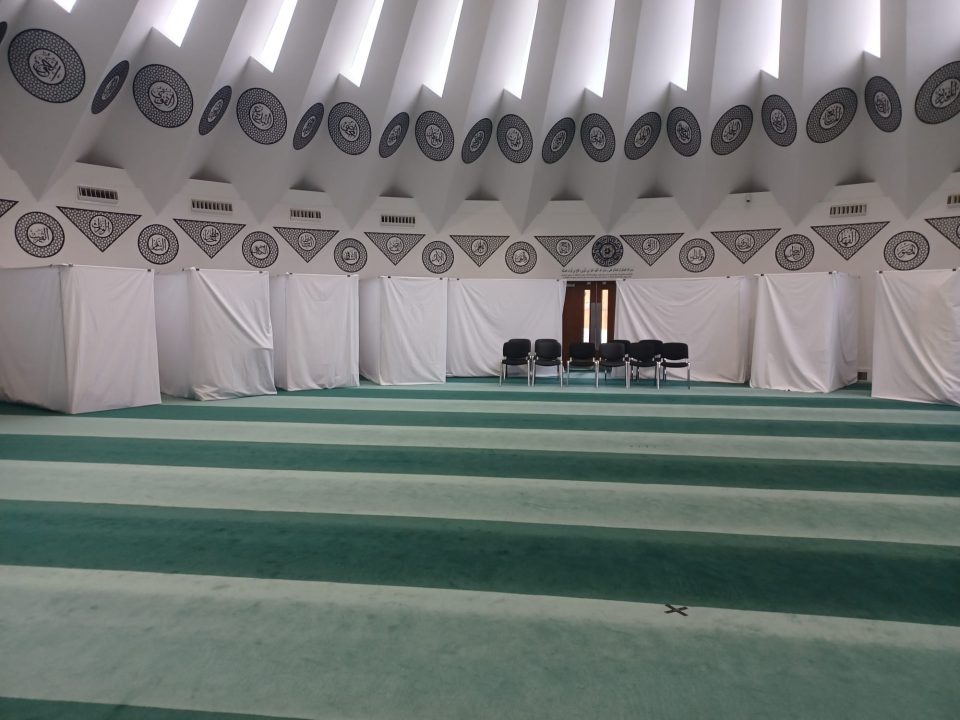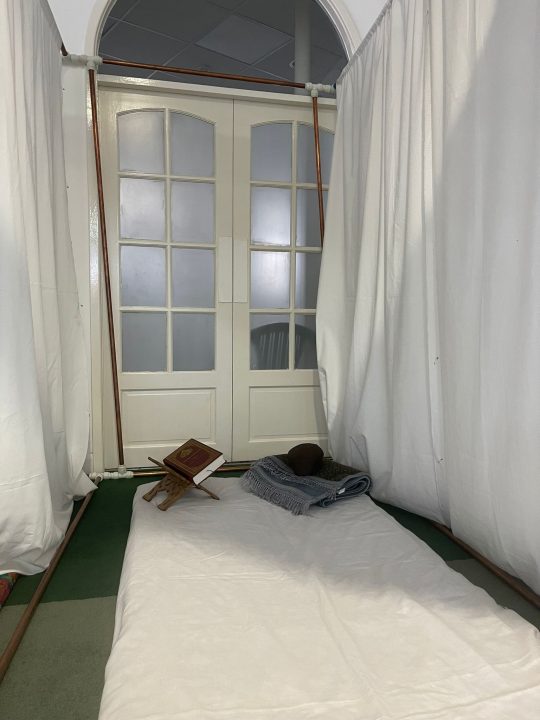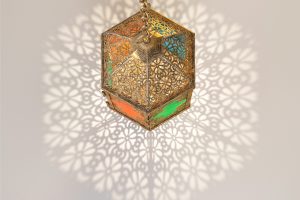
Waqar Ahmad Ahmedi, UK
Imagine being by yourself, occupying a space no more than a few square feet, with barely anyone to talk to, no phone or social media, nor anything to eat and drink for hours each day – all this for a week and a half. What would you do?
That is how a number of Muslims have chosen to live during the final 10 days of Ramadan in an observance known as i’tikaf. For the first time, both my 18-year-old son and son-in-law are among them.
What exactly is i’tikaf, and why do many Muslims observe it?
I’tikaf is an Arabic word meaning ‘to stay in one place’. In religious practice, it is a period of seclusion in which a person cuts off ties with the outside world and devotes themselves to God’s remembrance, reflection and repentance. It follows the example of past prophets and saintly figures, including Moses and Mary, who sought nearness to their Maker.
Since his youth, the Holy Prophet Muhammad (sa) frequented a cave called Hira just outside Makkah, Arabia, where he spent as long as a month every year in such solitude. It was during one of these retreats, when he was 40 years of age, that the angel Gabriel visited him with the command “Iqra!” (Read!) and informed him of his appointment as a messenger of Allah. This was the beginning of the Qur’anic revelation and the founding of Islam as a universal religion. Known as Laylat al-Qadr, or The Night of Destiny, it changed the course of history forever.
It was also the Prophet’s practice to observe i’tikaf mainly in the last third of Ramadan. The primary purpose fasting is the pursuit of righteousness, piety and God-consciousness, and there is no better time for this endeavour than during the retreat. Inspired by the Prophet’s (sa) model, for the past fourteen centuries, countless Muslims have voluntarily taken time off work, study and other commitments to spend the final 10 days of the sacred month as temporary residents in mosques all over the world.
Apart from going to the washroom and joining others to open and break the fast, one must remain in the mosque during i’tikaf, as the sole focus is to connect with God.
There is no denying the spiritual, moral and mental discipline needed to successfully complete such an undertaking. In an age of constant human interaction, the choice of some to isolate themselves for days for the sake of worship may appear antisocial, if not antiquated.

Yet professionals who aspire to climb the career ladder and athletes who train to become the best must all struggle to accomplish their goals. Faith works along the same principle: progress and attainment (to use educational terms) apply to the soul just as much as they do to the mind and body. Therefore, achieving proximity to God must also come with sacrifice.
As demanding as i’tikaf is, it is also deeply personal, and everyone’s routine will be different. Most will occupy the day with reciting the Holy Qur’an, reading other religious literature, and listening to lectures delivered by a scholar. The late evenings will mainly be spent offering additional prayers known as Tahajjud.
This period of intensified worship and learning is designed to inspire honest introspection and inner change. Other reasons for observing i’tikaf will also vary from one person to another, and may be motivated by a significant change in their life. This was the case for me personally more than 20 years ago, when I was about to become a father for the first time, and wanted to make use of this unique opportunity for my prayers for my growing family to be granted special acceptance. My daughter did the same prior to her marriage.
“And when My servants ask about Me, say ‘I am near. I answer the prayer of the supplicant when he prays to Me’” (Surah Al Baqarah 2: 187).
For my i’tikaf, I had also prepared a list of more than 300 names of people who I especially wanted to pray for, including prophets of Allah, my ancestors, my close relatives, as well as my teachers, friends and neighbours.
I would raise my hands and pray for each person individually. I regularly prayed for the whole of humanity, particularly the disadvantaged and those in distress. This proved to be the most intense part of my retreat. Here I was, alone, undisturbed, head bowed before Allah, supplicating on others’ behalf.
I was reminded of the saying that angels pray for a person who prays for others in their absence. I’tikaf provides ample time for this, and I was determined for it not to go to waste. Occasionally, on completing prayers, I would be exhausted and my legs would become numb, forcing me to adjust my posture. However, these were people I held so dear that praying for them was worth any discomfort.
Often I also found myself reflecting on the life and time of the Holy Prophet (sa); how it was owing to his suffering and sacrifices, the relentless persecution he and his followers endured, their unwavering loyalty and dedication to Allah in the face of overwhelming opposition, that billions worldwide believe in the oneness of God. I realised that even my observance of i’tikaf stood as a testimony of the Prophet’s truth.
I remember the contrast between my feelings at the start and end of the retreat. Initially, I was slightly daunted and feared that I might not be up to the challenge, but by the time the last day had arrived I was reluctant to leave. The mosque had become a home, where so many prayers had been offered, so much knowledge acquired, and so many tears shed. It was my own one-to-One with my Creator, from which I emerged spiritually renewed and rejuvenated, with a deep conviction that He had heard my prayers.
After all these years, I am a witness to how so many of those prayers have been graciously accepted, several of them in ways I could never have expected. For me, this remains the strongest proof of the existence of God, Who is truly a Friend to anyone who seeks Him. Those observing i’tikaf this year, including my family members, have a blessed opportunity to have the same experience.
About the author: Waqar Ahmad Ahmedi is Head of Religious Studies at a secondary school in Godalming, Surrey. He also serves on the Editorial Board of The Review of Religions.




Add Comment